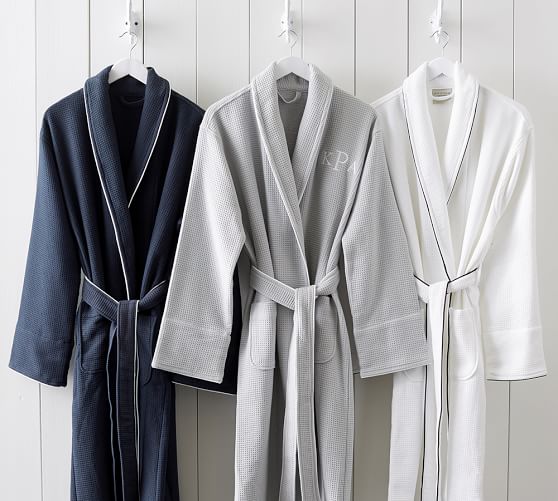
noun
- a long, loose or flowing gown or outer garment worn by men or women as ceremonial dress, an official vestment, or garb of office.
- any long, loose garment, especially one for wear while lounging or preparing to dress, as a bathrobe or dressing gown.
- a woman’s gown or dress, especially of a more elaborate kind: a robe for the evening.
- robes, apparel in general; dress; costume.
- a piece of fur, cloth, knitted work, etc., used as a blanket, covering, or wrap: a buffalo robe; a lap robe.
verb (used with object), robed, rob·ing.
- to clothe or invest with a robe or robes; dress; array.
verb (used without object), robed, rob·ing.
- to put on a robe.
noun
- any loose flowing garment, esp the official vestment of a peer, judge, or academic
- a dressing gown or bathrobe
- Australian informal a wardrobe
verb
- to put a robe, etc, on (oneself or someone else); dress
“long, loose outer garment,” late 13c., from Old French robe “long, loose outer garment” (12c.), from a Germanic source (cf. Old High German rouba “vestments”), from West Germanic *raubo “booty” (cf. Old High German roub “robbery, breakage”), which also yielded rob (v.).
Presumably the notion is of garments taken from the enemy as spoils, and the Old French word had a secondary sense of “plunder, booty,” while Germanic cognates had both senses; e.g. Old English reaf “plunder, booty, spoil; garment, armor, vestment.” Meaning “dressing gown” is from 1854. Metonymic sense of “the legal profession” is attested from 1640s.
late 14c., from robe (n.). Related: Robed; robing.
 Liberal Dictionary English Dictionary
Liberal Dictionary English Dictionary